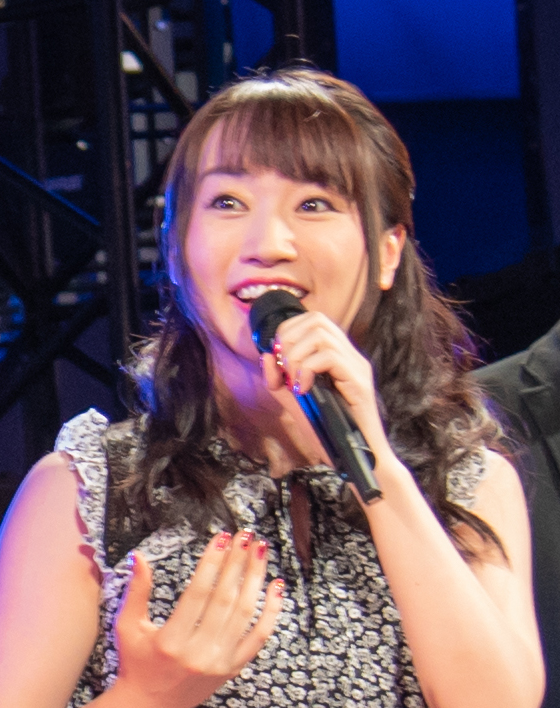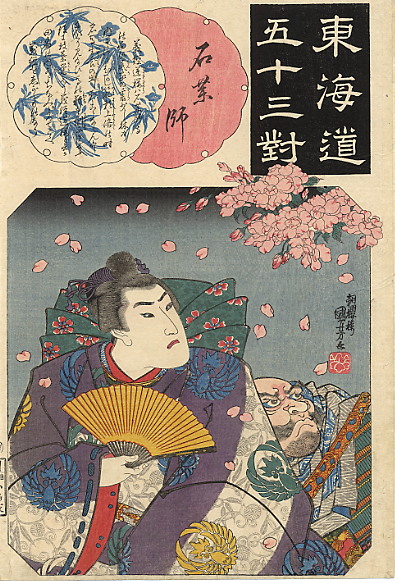|
Johnnys
were a Japanese boy band created by Johnny Kitagawa before the formation of the Japanese talent agency Johnny & Associates. The group was formed in April 1962 and lasted until November 20, 1967. They are considered one of the first of Japan's idol groups. Johnnys is also an abbreviation for "Johnny's Jimusho" and also for the talents signed to the agency. For the sake of convenience in Japan, the group is often called "First Generation Johnny's" or "Founding Johnnys". For those considered to be "bishōnen" the term "Johnnys Type" is used. The word, despite referring to one male's looks, is not to be mistaken for the word "Ikemen". Their debut single "Wakai Namida" (1964) was composed by Hachidai Nakamura with the lyrics by Rokusuke Ei. Nakamura and Ei formerly made the music and lyric of Kyu Sakamoto's U.S. ''Billboard'' Hot 100 number-one single "Sukiyaki." On December 31, 1965, Johnnys sang the song "Mack the Knife" in the 16th NHK Kōhaku Uta Gassen at the Tokyo Takaraz ... [...More Info...] [...Related Items...] OR: [Wikipedia] [Google] [Baidu] |
Johnny Kitagawa
John Hiromu Kitagawa (Japanese name ; October 23, 1931 – July 9, 2019), known professionally as , was a Japanese business magnate, promoter, record producer. He was best known as the founder of Johnny & Associates, a talent agency for numerous popular boy bands in Japan. In 2023, after his death, a BBC documentary, ''Predator: The Secret Scandal of J-Pop'', reignited discussion of allegations that he had taken advantage of his position to engage in improper sexual relationships with boys under contract to his talent agency. This led to an independent probe which concluded that Kitagawa had "repeated and widely" abused boys in his organizations since the 1970s. Kitagawa assembled, produced and managed more than a dozen popular bands, including Tanokin Trio, Hey! Say! JUMP, SMAP, Arashi, Kanjani8, V6, NEWS and KAT-TUN. Kitagawa's influence spread beyond music to the realms of theatre and television. Regarded as one of the most powerful figures in the Japanese entertainment in ... [...More Info...] [...Related Items...] OR: [Wikipedia] [Google] [Baidu] |
Johnny & Associates
was a Japanese talent agency formed by Johnny Kitagawa in 1962, which managed groups of male idols known as The company had a significant impact on pop culture with male idols and boy bands in Japan since the 1980s. Until 2019, the company was known for its strict policies regarding music distribution abroad and its strict control over the right of publicity to using the likeness of idols under its management. In the wake of continuing sexual abuse allegations directed against Kitagawa, who died in 2019, his niece, Julie Keiko Fujishima, stepped down as president in September 2023. On October 2, 2023, Johnny & Associates announced that they would be splitting into two entities: Smile-Up, a firm focused on reparations for Kitagawa's sexual abuse cases, and Starto Entertainment, a talent agency managing the acts that had been managed under Johnny & Associates. History 1962–1989 In 1962, Kitagawa launched his first group, Johnnys. In its early days, Kitagawa's agency rente ... [...More Info...] [...Related Items...] OR: [Wikipedia] [Google] [Baidu] |
Hachidai Nakamura
was a Japanese songwriter and jazz pianist. Biography Hachidai Nakamura was born in Qingdao, Republic of China, to Japanese parents, before moving to Kurume at a young age, where he attended high school. He graduated from Waseda University in Tokyo with a degree in literature. Nakamura extensively played piano during his high school days, where he was invited to perform with local dance band "Yasuhiko Taniguchi and Premier Swing", and "The Red Hat Boys", a student jazz combo. After Nakamura entered Waseda University, he formed a jazz band named "Big Four" along with Hidehiko Matsumoto, Joji "George" Kawaguchi, and Mitsuru Ono in 1953, but the band was soon disbanded. As a composer, Nakamura later wrote many songs for various Japanese singers such as Kyu Sakamoto, enka singer Saburō Kitajima, and Johnny & Associates' first group Johnnys. He worked closely with lyricist Rokusuke Ei was a Japanese lyricist, composer, author, essayist, and television personality of Chinese des ... [...More Info...] [...Related Items...] OR: [Wikipedia] [Google] [Baidu] |
Never My Love
"Never My Love" is a pop standard written by American siblings Don and Dick Addrisi, and best known from a hit 1967 recording by the Association. The Addrisi Brothers had two Top 40 hits as recording artists, but their biggest success as songwriters was "Never My Love". Recorded by dozens of notable artists in the decades since, in 1999 the music publishing rights organization Broadcast Music, Inc. (BMI) announced it was the second most-played song on radio and television of the 20th century in the U.S. History The first recording of "Never My Love" to achieve success was by the Association, an American sunshine pop band from California. Their version of the song, recorded with members of The Wrecking Crew (music), the Wrecking Crew, peaked at number two on the Billboard Hot 100, ''Billboard'' Hot 100 chart, kept out of the number one spot by "The Letter (Box Tops song), The Letter" by the Box Tops, and hit number one on the ''List of Cash Box Top 100 number-one singles of 1967, ... [...More Info...] [...Related Items...] OR: [Wikipedia] [Google] [Baidu] |
Japanese Idol
An is a type of entertainer marketed for image, attractiveness, and personality in Japanese popular culture, Japanese pop culture. Idols are primarily singers with training in other performance skills such as acting, dancing, and modeling. Idols are commercialized through merchandise and endorsements by Talent agent, talent agencies, while maintaining a parasocial relationship with a financially loyal consumer fan base. Japan's idol industry first emerged in the 1960s and became prominent in the 1970s and 1980s due to television. During the 1980s, regarded as the "Golden Age of Idols", idols drew in commercial interest and began appearing in commercials and television dramas. As more niche markets began to appear in the late 2000s and early 2010s, it led to a significant growth in the industry known as the "Idol Warring Period." Today, over 10,000 teenage girls in Japan are idols, with over 3,000 groups active. Japan's idol industry has been used as a model for other pop idol in ... [...More Info...] [...Related Items...] OR: [Wikipedia] [Google] [Baidu] |
Bishōnen
is a Japanese term literally meaning "beautiful youth (boy)" and describes an aesthetic that can be found in disparate areas in East Asia: a young man of androgynous beauty. This word originated from the Tang dynasty poem '' Eight Immortals of the Wine Cup'' by Du Fu. It has always shown the strongest manifestation in Japanese pop culture, gaining in popularity due to the androgynous glam rock bands of the 1970s, but it has roots in ancient Japanese literature, the androsocial and androerotic ideals of the medieval Chinese imperial court and intellectuals, and Indian aesthetic concepts carried over from Hinduism, imported with Buddhism to China. Today, are very popular among girls and women in Japan. Reasons for this social phenomenon may include the unique male and female social relationships found within the genre. Some have theorized that provide a non-traditional outlet for gender relations. Moreover, it breaks down stereotypes surrounding feminine male characters. ... [...More Info...] [...Related Items...] OR: [Wikipedia] [Google] [Baidu] |
Pop Music
Pop music is a genre of popular music that originated in its modern form during the mid-1950s in the United States and the United Kingdom.S. Frith, W. Straw, and J. Street, eds, ''iarchive:cambridgecompani00frit, The Cambridge Companion to Pop and Rock'' (Cambridge: Cambridge University Press), , pp. 95–105. During the 1950s and 1960s, pop music encompassed rock and roll and the youth-oriented styles it influenced. ''Rock music, Rock'' and ''pop'' music remained roughly synonymous until the late 1960s, after which ''pop'' became associated with music that was more commercial, wikt:ephemeral, ephemeral, and accessible. Identifying factors of pop music usually include repeated choruses and Hook (music), hooks, short to medium-length songs written in a basic format (often the verse–chorus form, verse–chorus structure), and rhythms or tempos that can be easily danced to. Much of pop music also borrows elements from other styles such as rock, hip hop, urban contemporary, ... [...More Info...] [...Related Items...] OR: [Wikipedia] [Google] [Baidu] |
Musical Groups Disestablished In 1967 , the ability to perceive music or to create music
*
{{Music disambiguation ...
Musical is the adjective of music. Musical may also refer to: * Musical theatre, a performance art that combines songs, spoken dialogue, acting and dance * Musical film and television, a genre of film and television that incorporates into the narrative songs sung by the characters * MusicAL, an Albanian television channel * Musical isomorphism, the canonical isomorphism between the tangent and cotangent bundles See also * Lists of musicals * Music (other) * Musica (other) * Musicality Musicality (''music -al -ity'') is "sensitivity to, knowledge of, or talent for music" or "the quality or state of being musical", and is used to refer to specific if vaguely defined qualities in pieces and/or genres of music, such as melodiousnes ... [...More Info...] [...Related Items...] OR: [Wikipedia] [Google] [Baidu] |
Japanese Pop Music Groups
Japanese may refer to: * Something from or related to Japan, an island country in East Asia * Japanese language, spoken mainly in Japan * Japanese people, the ethnic group that identifies with Japan through ancestry or culture ** Japanese diaspora, Japanese emigrants and their descendants around the world * Japanese citizens, nationals of Japan under Japanese nationality law ** Foreign-born Japanese, naturalized citizens of Japan * Japanese writing system, consisting of kanji and kana * Japanese cuisine, the food and food culture of Japan See also * List of Japanese people * * Japonica (other) * Japanese studies , sometimes known as Japanology in Europe, is a sub-field of area studies or East Asian studies involved in social sciences and humanities research on Japan. It incorporates fields such as the study of Japanese language, history, culture, litera ... {{disambiguation Language and nationality disambiguation pages ... [...More Info...] [...Related Items...] OR: [Wikipedia] [Google] [Baidu] |



